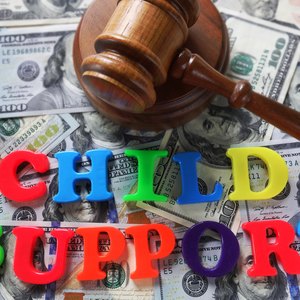
Veteran’s benefits are considered to be protected income and as such, exempt from a garnishment order in most cases. However, the key phrase is “most cases,” because federal and state laws do not protect all types of VA benefits from every garnishment scenario. Understanding when your VA disability, pension or retirement payment is under legal protection is vital to safeguarding your money.
Consumer vs. Federal Debt
VA benefits cannot be garnished to repay consumer debt, such as a past due credit card bill or a personal loan. Benefits also cannot be garnished to repay past due federal student loan debt or be included in bankruptcy proceedings. However, there is no built-in protection for VA pension and retirement benefits if you owe money to the federal or state government. Pension and retirement benefits are subject to assignment for federal debts such as child support or alimony, as well as federal and state income taxes.
The Two-Month Rule
Federal laws do not protect every dollar of every exempt VA benefit payment. The Garnishment of Accounts Containing Federal Benefit Payments rule, which became effective on May 1, 2011, says that only funds deposited in the two months preceding a garnishment order are protected. Your bank is responsible for reviewing deposits and calculating the protected amount. The amount must be the lesser of all exempt VA benefits deposited within the past two months or the balance in the account.
Conditional Protection
Automatic protection doesn't always apply to exempt benefits. VA benefits will not receive automatic protection if:
- You do not use direct deposit to a bank account or the government’s Direct Express prepaid debit card
- You transfer deposited money from the receiving bank account to another bank account
According to the Consumer Financial Protection Bureau, this doesn’t necessarily mean your benefits won’t receive protection, but to do so you’ll have to file for an exemption.
Exceptions to the Garnishment Rule
Four exceptions can protect VA benefits from being garnished for past due child support and alimony. These include:
- Proving that the garnishment would cause you an undue financial hardship
- Your ex-spouse or child has not filed an apportionment request to claim your benefits
- Your ex-spouse is living with another person and acting like they are married
- Your ex-spouse was found guilty of conjugal infidelity -- cheating -- by a state court
References
- Federal Trade Commission Consumer Information: Garnishing Federal Benefits
- Student Loan Borrower Assistance: Federal Benefits Offsets
- Consumer Financial Protection Bureau: Can a Creditor Garnish My Social Security Benefits to Pay a Debt?
- Nolo: How Divorce, Alimony, and Child Support Affect Veterans' VA Benefits
Writer Bio
Based in Green Bay, Wisc., Jackie Lohrey has been writing professionally since 2009. In addition to writing web content and training manuals for small business clients and nonprofit organizations, including ERA Realtors and the Bay Area Humane Society, Lohrey also works as a finance data analyst for a global business outsourcing company.

